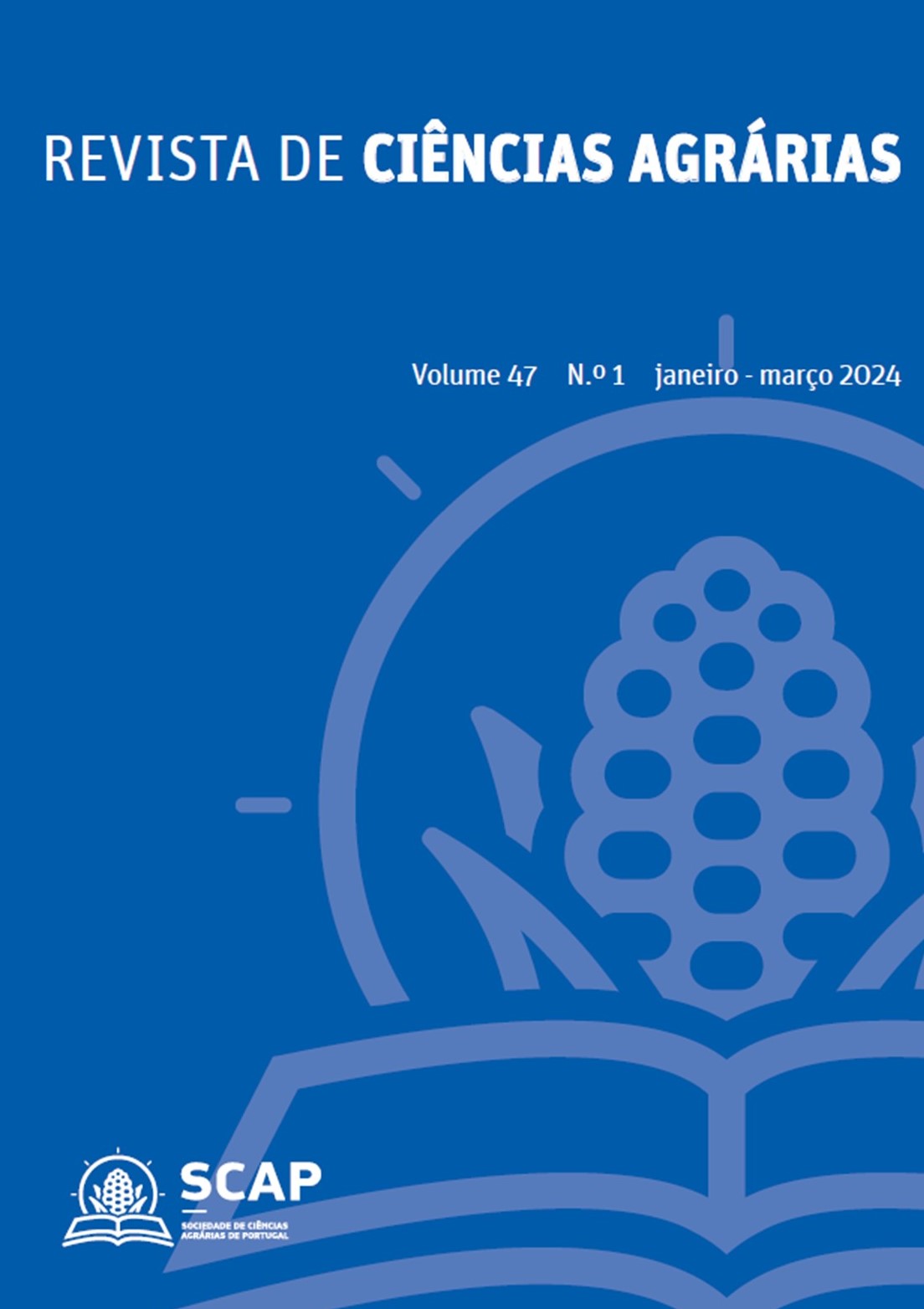Evaluation of rice straw and eucalyptus leaves mulching for weed management in mediterranean vineyards
DOI:
https://doi.org/10.19084/rca.34847Resumen
Vineyards are characteristic of Mediterranean Europe, holding a large and diverse number of plants that frequently need to be controlled due to the competition with the vines. The main objective of this study was to evaluate the weed-controlling potential of two organic mulches (0,25 cm rice straw, RS, 0,15 cm eucalyptus leaves, EL), for which chemical analysis was carried out. The experimental trial took place at two vineyards of the School of Agriculture, Lisbon (ISA) and two vineyards in Quinta do Pinto, Torres Vedras (QDP), in 'Alvarinho' and 'Syrah' varieties in both locations, with three replicates. The usual soil management of ISA/QDP was used as Control (C). Floristic surveys (n=216) from March to September 2022 led to indices of abundance, frequency, and diversity, which were compared by descriptive statistics and ANOVA between locations, monthly observations, and treatments. Fifty-nine plant taxa were found. Convovulus arvensis prevailed in the floristic surveys. RS was significantly different from EL and C with lower species richness, diversity and abundance indicators. RS had higher dominance values due to C. arvensis prevalence. There were differences in flora between locations and seasons, but the difference between RS and EL/C was always maintained. RS followed by EL had much higher costs than C, however, costs were not optimized, and the beneficial effects of weeds must be considered. Therefore, EL was considered the most sustainable soil management option. Future research should include biological soil analysis, tests for the longevity and the benefits of mulching in the field.


